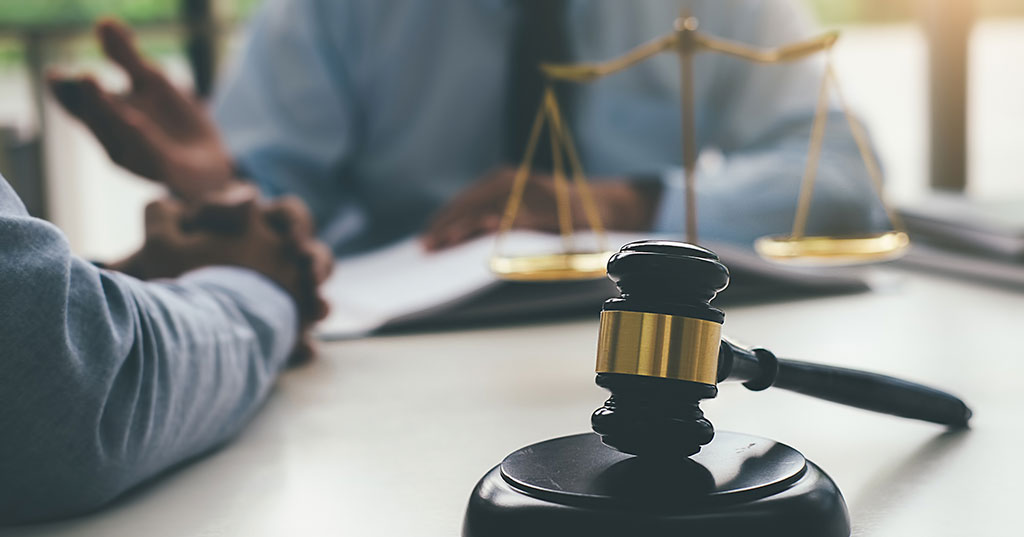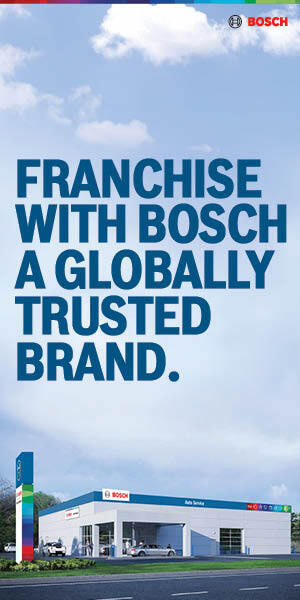Getting Legal Advice

By the time you need legal advice to see if a franchise is right for you, you've come a long way in the evaluation process.
You've done your initial research investigating franchise brands and industries; had several phone interviews with selected franchisors; verified that your finances are sufficient; run the idea by your family and trusted advisors; and narrowed down your choice to a handful of brands, perhaps even one. You may already have attended a Discovery Day. Now what?
Until now, your research has been relatively inexpensive. However, before spending a lot of money to become a franchisee, it's time to open up your checkbook and be prepared to spend some on a lawyer.
But not just any lawyer. Franchise law is specialized. It differs from other areas of business law. So even if you have a trusted attorney you've been working with for years, you'll need a lawyer with expertise and experience in franchising.
But not just any franchise lawyer. They specialize, too. Some represent only franchisors, some franchisees, some both. Some are sole entrepreneurs, and some work for large firms with offices around the globe. And some specialize in specific industries, such as food, lodging, services, or B2B. So find yourself an attorney or a law firm that specializes in representing franchisees, and one preferably well versed in the industry you've chosen.
The FDD
The first time you'll require professional legal advice is when you receive the Franchise Disclosure Document (FDD) from the franchisor. Deciphering the legal and financial information contained in this long, complex document requires expertise you most likely do not possess.
Nevertheless, the first step upon receiving an FDD is to read it yourself! Many franchisors bemoan the fact that candidates don't read the FDD (or the operating manual later!), often leading to dissatisfaction and disputes that could have been avoided "if only." Once you are familiar with the FDD and its 23 "Items" and have prepared a list of questions and concerns, it's time to see a lawyer.
This is not the time to be penny-wise and pound-foolish. You are looking at investing a large sum of money and should know what you're getting into. The FDD contains information on past litigation (Item 3), bankruptcies (Item 4), franchisor support (Item 11), restrictions on what you can sell (Item 16), financial performance representations (Item 19), and other required items.
The Franchise Agreement
If you have cleared the FDD hurdle with your lawyer's blessings (and admonitions), the next step you will need professional legal help with is reviewing the franchise agreement.
Franchise agreements are written by attorneys who represent the interests of the franchisor. While many of the sections and clauses legitimately safeguard the brand and the system and are beyond negotiation, many franchise agreements contain standard "boilerplate" items that a skilled franchise attorney can identify and negotiate to have removed or modified before you sign.
Before spending money for an attorney to negotiate anything, however, check with the franchisor to see if they will negotiate at all. The larger, more popular brands don't have to and often will not. Areas open for negotiation can include renewal, indemnification, protection of territory, transfer of ownership, right of first refusal, audit expenses, non-competes, arbitration, personal guarantees, and advertising funds. An experienced franchise attorney also can tell you how your pending franchise agreement stacks up against those of other brands they've seen, and determine if it's in the ballpark or contains uniquely onerous terms.
Any competent attorney can draw up your papers of incorporation and handle your everyday business needs. Still, there may be advantages to using a franchise attorney for this too, as they've seen the pros and cons of different types of business entities formed by their franchisee clients, and can advise on which form may be the best to help you achieve your goals — and keep your tax liability to a minimum. They also can provide help in reviewing and negotiating leases, human resources, and other franchise-related issues as they arise.
How to choose
The best source, of course, is a referral from a trusted source. One good place to start is during your due diligence, when you're speaking and meeting with existing franchisees. Ask them who their attorney is, or if they can recommend an individual or firm.
Organizations
- The American Association of Franchisees & Dealers — The AAFD offers its Franchisee LegaLine, as well as its Franchisee Bill of Rights.
- American Bar Association Forum on Franchising — The ABA's group focused on franchising includes many of the best-known franchise attorneys and firms. Again, look for one who works on behalf of franchisees.
- American Franchisee Association — The AFA offers a list of legal resources, by state. Also look for these two items: "The Twelve Worst Franchise Agreement Provisions" and "The Problems Franchisees Face."
- International Franchise Association Supplier Forum — The IFA also provides a list of reputable franchise attorneys.
Franchisee Associations
- Franchisee associations are another good source of information about a particular franchisor. These groups, formed to protect the rights of the brand's franchisees, can work both in conjunction with and in opposition to the franchisor. The Coalition of Franchisee Associations, whose mission is "to leverage the collective strengths of franchisee associations for the benefit of the franchisee community," also may provide some guidance.
Bar Associations
State bar associations are another good resource for finding qualified franchise attorneys. In addition to the federal regulations from the Federal Trade Commission, state regulators have their own rules franchisors must follow.
Fees
Before handing over your documents for review, ask the attorney you've chosen for an estimate. For a franchise agreement with a brand that will not modify a word, a fixed rate may apply. If your chosen franchisor will negotiate, it often is well worth the extra hourly fees if your attorney can negotiate a better contract. After all, you'll be subject to its terms for the next 5 or 10 years, and any yearly savings will add up over time.
Sample questions
To help you get started in your attorney review process, here are some questions you might ask. It's always wise to interview at least two attorneys, to get an idea of how their approach may differ — and to see how well you get along with them in terms of trust, communication, and gut feeling. After all, they may with you for years as well.
- How many FDDs have you reviewed? Have you written any? Whose? When?
- How many franchise agreements have you reviewed? Have you negotiated any? What areas did you change that benefited your franchisee clients?
- Can you provide references of franchisee clients?
- How much of your practice is dedicated to franchising?
- Of your franchise clients, what percentage are franchisees? Franchisors?
- What percentage of your time do you spend on franchisees? Franchisors?
- Are you a member of the ABA Forum on Franchising?
- Are you a member of the IFA Supplier Forum?
- Can you help me choose the best legal entity to help me achieve my personal and financial goals?
- After I become a franchisee, will you be able to represent me if I have a dispute with my franchisor?
As the attorney responds, listen to both the factual, legal answers as well as how you feel about the person giving them. An attorney is a trusted advisor, and while you always make the final decision, you want the best advice from someone you can count on to always act with your best interests in mind.
After the sale
There are many ways for the franchisee-franchisor relationship to sour. If either side decides that "lawyering up" is their best alternative, you'll need an expert franchise lawyer here, too, preferably one skilled in negotiation, mediation, arbitration, and if necessary, litigation.
Attorneys who represent franchisees in disputes with franchisors are famous for shaking their head and saying, "If only they'd only come to me before signing that franchise agreement."
Yes, it will cost you money up front to have a good franchise attorney review and explain the FDD and the franchise agreement. But it will be money well worth spending on the front end to avoid paying much more later and be one of those franchisees who laments, "If only I'd know that was in the contract when I signed it." Don't be one of them. Hire a good franchise attorney.
| Back: 7.8: The FDD: What To Expect |
Index |
Next: 8.1: Signing With A Franchise |
Share this Page
| ADVERTISE | SPONSORED CONTENT |
Franchise Guides »
- Recent Guides
The Latest Franchise Guides for Opportunity Seekers - The Franchise Guide
An In Depth Analysis of the Franchise Industry - Franchise Buyers Guide
The First Steps to Franchise Ownership - Multi-Unit Buyers Guide
Featured Choices: |
Popular Choices: |
Featured Opportunities
| ADVERTISE | SPONSORED CONTENT |




 The franchise opportunities listed above are not related to or endorsed by Franchising.com or Franchise Update Media Group. We are not engaged in, supporting, or endorsing any specific franchise, business opportunity, company or individual. No statement in this site is to be construed as a recommendation. We encourage prospective franchise buyers to perform extensive due diligence when considering a franchise opportunity.
The franchise opportunities listed above are not related to or endorsed by Franchising.com or Franchise Update Media Group. We are not engaged in, supporting, or endorsing any specific franchise, business opportunity, company or individual. No statement in this site is to be construed as a recommendation. We encourage prospective franchise buyers to perform extensive due diligence when considering a franchise opportunity.